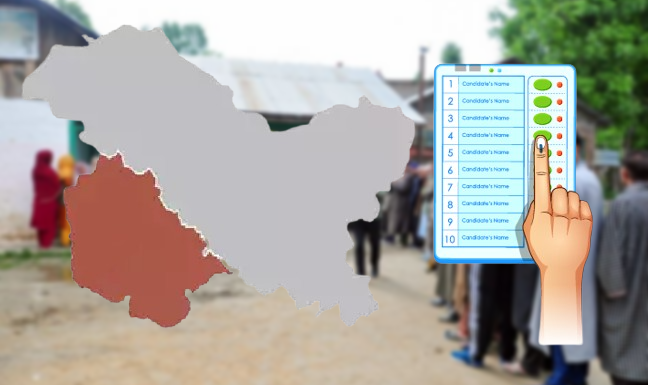
- The upcoming assembly elections in J&K represent a pivotal moment in the region’s political evolution, signalling a deeper integration of the region into the Indian political mainstream.
- The election, covering 90 assembly seats, will be the shortest in at least two decades.
- Chief Election Commissioner Rajiv Kumar has emphasized that ‘the best answer to bullets is ballots,’ yet the rising attacks have undeniably caused fear among the local people.
Jammu and Kashmir are preparing for phased Assembly Elections for the first time in ten years since Article 370 was repealed. The Election Commission of India revealed this significant news on August 16, with the election spread over three phases: September 18, September 25, and October 1, and results set to be announced on October 4. The election, covering 90 assembly seats, will be the shortest in at least two decades. Despite the positive aspect of resuming democratic processes, recent spikes in terror incidents might overshadow and complicate the election proceedings.
First Since the Abrogation Of Article 370
The upcoming assembly elections in the Union Territory represent a pivotal moment in the region’s political evolution, signalling a deeper integration of Jammu and Kashmir into the Indian political mainstream. These elections, scheduled for next month, are more than just a process for electing representatives; they also embody the public’s reaction to the Centre’s decision to repeal Article 370—a move few politicians in the valley view as a breach of the promises made during the region’s 1947 accession to India. The elections are expected to benefit regional parties such as the National Conference (NC) and the Peoples Democratic Party (PDP), which have been critical of the Article 370 revocation. At the same time, the Bharatiya Janata Party and Congress, which have seen reduced influence in the area, will aim to enhance their presence.
In fact, in the latest Lok Sabha Elections, Jammu and Kashmir recorded a notable voter turnout of 58.46%, marking the highest level of participation in 35 years, according to the Election Commission. Ladakh, which became an independent Union Territory in 2019, also witnessed a strong turnout of 71.82%, reflecting a high level of democratic engagement.
Spurt in Terror Attacks Cast Shadow
For months, the prospect of assembly elections had generated a wave of hope and optimism across Jammu and Kashmir and the entire nation. However, this optimism has been overshadowed by a series of coordinated terror attacks that have struck key areas in the Jammu region, including Kathua and Doda. While Army officials and J&K police are intensifying their efforts to apprehend those responsible, and the Central government has been instructed to use the “full spectrum of counter-terror capabilities,” doubts about the J&K elections remain.
Although the Assembly Elections represent a positive change for the region, the increasing frequency of terror attacks in Jammu and Kashmir is keeping tensions high. The violence, which was previously restricted to the Kashmir Valley, has now spread into the forested areas of Jammu. Chief Election Commissioner Rajiv Kumar has emphasized that “the best answer to bullets is ballots,” yet the rising attacks have undeniably caused fear among the local people.
(Palak Dogra is a journalist and a graduate of the Delhi University graduate. She writes on critical international and national developments, aiming to engage the public on issues that truly matter. Views expressed are the author’s own.)
Palak Dogra, a journalist and Delhi University graduate is committed to shedding light on critical international and national developments, aiming to engage the public on issues that truly matter.
